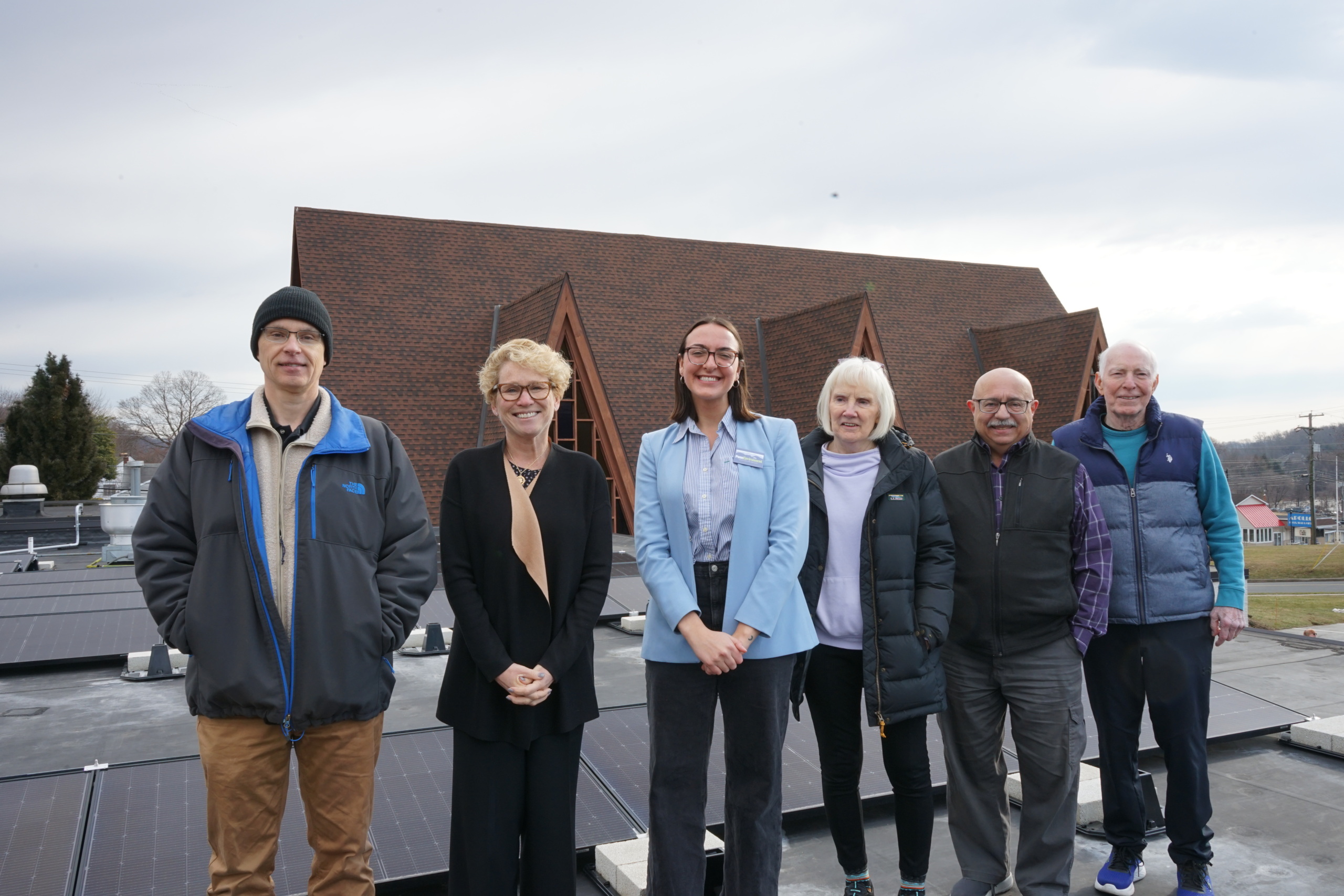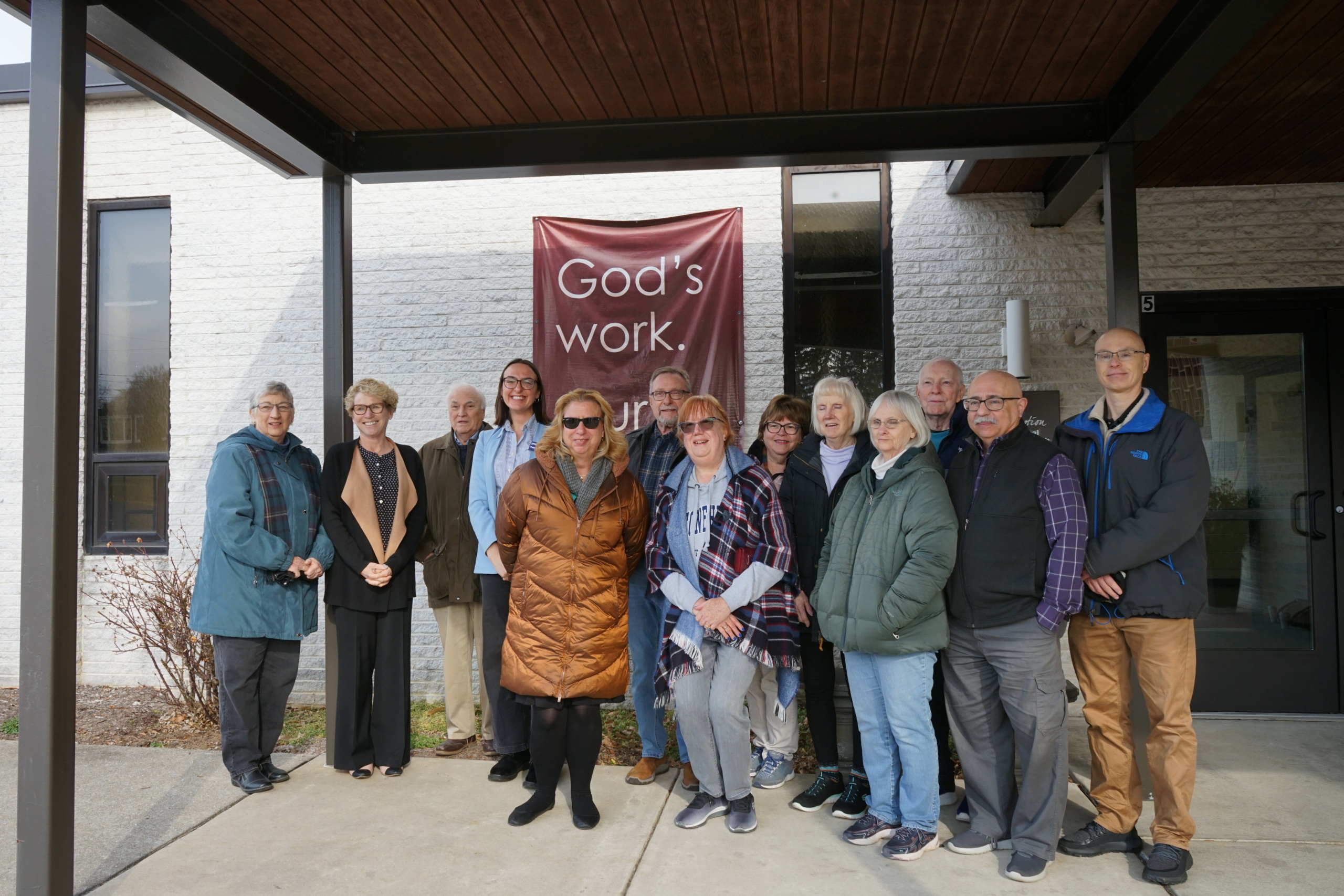Flora Cardoni
Field Director, PennEnvironment
Field Director, PennEnvironment
Reading, PA – U.S. Representative Chrissy Houlahan joined PennEnvironment today at the Reformation Lutheran Church in Exeter Township in Berks County to see the newly installed solar panels at this local house of worship. Churches across the country and in our own backyards are increasingly powered by the sun, thanks, in part, to new federal clean energy tax credits from the Inflation Reduction Act.
“There’s never been a better time for houses of worship to use the power of the sun to electrify their congregations,” said Flora Cardoni, field director of PennEnvironment. “Plentiful sunshine and generous solar incentives through the Inflation Reduction Act are here. Now, congregations in Pennsylvania just need to take advantage of them.”

Rep. Chrissy Houlahan joins PennEnvironment for a tour of the solar array on the Reformation Lutheran Church in ReadingPhoto by TPIN | TPIN
Solar energy is abundant, efficient and increasingly affordable, and houses of worship often are great candidates for rooftop solar panels. While people frequent these buildings much less during the week, their panels will still generate power that churches can sell back to utility companies. And come weekend prayer services, churches and other congregations can benefit from the clean power and lower utility bills.
“I was thrilled to visit the Reformation Lutheran Church in Reading and witness the positive impact of their commitment to clean energy through the installation of rooftop solar panels. It’s inspiring to see community organizations lead by example and adopt sustainable practices,” said Rep. Houlahan. “The Inflation Reduction Act played a crucial role in making clean energy more accessible, and today’s visit is just one example of the positive environmental and economic impacts that result from leveraging federal clean energy tax credits. Initiatives like these benefit the local community by reducing carbon emissions and contribute to the larger goal of transitioning towards a more sustainable and resilient future.”
The Reformation Lutheran Church installed a 69-panel rooftop solar system in 2023. Since its installation five months ago, the system has displaced over six tons of carbon and generated about $1,500 worth of electricity for the Reformation Lutheran Church. The church financed the system with a matching grant from the Berks County Community Fund. At the same time, the Reformation Lutheran Church will also get part of the purchase price back through funding available through the Inflation Reduction Act.
Pennsylvania is currently ranked 26th in the nation for solar power. Beyond the financial benefits, solar panels increase a community’s resilience during extreme weather events. Solar panels and batteries can be independent from the grid, meaning the lights stay on during power outages–critical for houses of worship that provide shelter during emergencies.
“It was an outgrowth – not just of the idea of saving money, and enjoying that cost savings – but also the idea that we’re called as Christians to love God and our neighbor,” shared Pastor Paul Metzloff of the Reformation Lutheran Church. “The migrant farm worker who is picking tomatoes in 120 degree weather or the Bangladeshi farmer who’s rice field is washing away, those are our neighbors who are suffering today because of the climate crisis. So this seemed like the very least we could do is try to start getting some of our power from sustainable means.”

Rep. Chrissy Houlahan joins members of the congregation of the Reformation Lutheran Church in Reading for a tour of the church’s solar arrayPhoto by TPIN | TPIN
Previously, places of worship and other nonprofits were unable to directly take advantage of federal tax credits to finance the installation of solar panels. Now, federal incentives can cover 30 percent or more of the cost of going solar through a new “direct pay” credit, as detailed in a guide from PennEnvironment Research & Policy Center.
